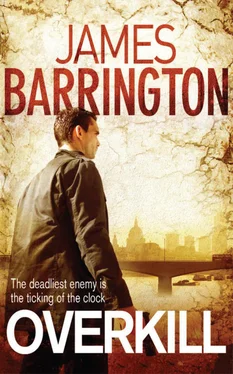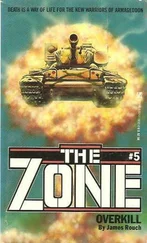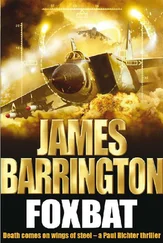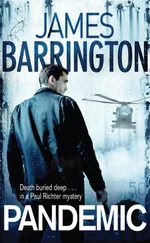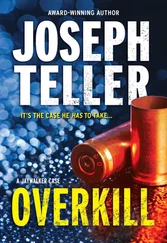Richter signed the two credit cards and put them in his wallet, together with the cash which amounted to about £500 in euros. He also found a permit issued by the Metropolitan Police, and endorsed by a senior Gendarmerie officer, in the name of Beatty authorizing the carriage of the Smith and Wesson, and a personal search exemption certificate which, together with the diplomatic passport, should avoid any problems with Customs on either side of the Channel. The FOE file was enclosed in two sealed envelopes, one large and one slightly smaller, as is mandatory for classified files which are taken out of a secure building. Richter wouldn’t open that until he reached his destination.
He stepped out of the Ford, glanced round the car park to check that he wasn’t being observed, opened the boot and dropped the haversack inside. From the suitcase of clothes he extracted a dark blue blazer which he swapped for his leather jacket. He had to wear a jacket simply because of the shoulder holster, and the blazer was more in keeping with the Granada than the motorcycle jacket would have been.
Richter started the car and drove down into Dover. He found his way to the Eastern Docks, where he presented his ticket and was directed into a line of other vehicles waiting to board the Calais ferry. Twenty-five minutes later he was aboard the P&O vessel and sitting in a corner seat in the Club Class lounge.
Richter ordered coffee, but ignored the newspapers and opened the briefcase. He made sure he couldn’t be overlooked, then read the copy letter of introduction to the Ambassador at the British Embassy in Paris. He read it twice, then put it into his jacket pocket. Immediately before disembarkation he would visit the loo, tear the letter into very small pieces and flush it away. That was not the recommended disposal method for a document of that classification, but entirely adequate in the circumstances.
He also looked at the faxed confirmation of his accommodation arrangements, and could immediately see what Tony Deacon had meant. The Cashier had booked Richter four nights in a cabin at Davy Crockett Ranch, one of the accommodation areas at the Disneyland Paris resort. However, a note attached to the fax from Simpson showed that the decision had received his approval, and there were actually good reasons for it.
First, Disneyland Paris was directly linked to the centre of the city, where only an idiot or a Frenchman would drive a car, by the very efficient rail system – the RER – which meant that Richter could reach the British Embassy in well under an hour. Second, by the very nature of the place, the car parks at Disneyland were always occupied by a varied selection of vehicles from all countries in Europe, so the Granada would be less likely to stand out there than it would in Paris itself. Third, Richter’s battered face would be less conspicuous in the relative privacy of a log cabin in a wood than in some left-bank hotel. Finally, Richter thought, bearing in mind the general absence of any sense of humour in the Russian psyche, Disneyland was not a place where they would be likely to look for him.
Overall, it was probably a good choice.
10 Downing Street, London
‘How certain are you about this?’ the grey-haired man asked. It was the first thing he had said since Simpson had stopped speaking three minutes earlier.
Sir Michael Geraghty, the current ‘C’ – Secret Intelligence Service chief – looked across at Simpson, who was sitting on his left, in front of the desk in the Prime Minister’s private office. ‘It’s assessed as Grade One intelligence, Prime Minister,’ Simpson replied. He didn’t need to explain further. All British Prime Ministers are required to be familiar with the terminology and procedures of the intelligence services, and the Cabinet’s most secret intelligence group, the Overseas and Defence Committee, is chaired by the Prime Minister.
The grey-haired man nodded. He removed his spectacles and rubbed his eyes, then replaced the glasses and looked over at Simpson. ‘You’re quite certain?’ he asked again. ‘There’s no possibility of any kind of error? It’s not some form of deception operation or anything of that kind?’
Simpson shook his head and opened his mouth to speak, but Geraghty cleared his throat and replied first. ‘We’re quite satisfied that what Simpson’s organization has uncovered is a real and potent threat to the security of the Western alliance and, more importantly, to Great Britain, Prime Minister,’ he said. ‘Simpson has outlined the measures he has put in train to resolve the immediate problem, that of the weapon intended for London, but that does not—’
‘I appreciate that, Sir Michael,’ the Prime Minister interrupted. ‘I just wanted to be absolutely sure.’ He picked up a fountain pen from the silver holder in front of him and removed the cap. He wrote a short note on a sheet of paper and then replaced the pen. ‘I was aware,’ he said, ‘from the last JIC meeting that the CIA was very disturbed about something going on in Russia. Now that Mr Simpson’s group has identified the substance of the threat, we at least know what we are up against. What is not clear to me at the moment is what we can do about it. Obviously this matter will have to be discussed at Cabinet level,’ he added, ‘and we will need to carefully consider our military options. Apart from the operation in France, what other measures would you think appropriate?’
Sir Michael Geraghty shook his head. ‘There is little more that the intelligence services can do, Prime Minister. We have no direct access – official or unofficial – to the SVR or GRU, and even if we had I don’t know what steps we could take to resolve the situation. In my view, the only possible actions available to us now are political and military. Political, to put pressure on the Kremlin to stop this operation before it can be implemented, and military to provide a viable counter to the threat in the event that political persuasion fails.’
The Prime Minister nodded. ‘The Independent Nuclear Deterrent?’
‘Yes, Prime Minister,’ Simpson said. ‘We park two of our missile-carrying nuclear submarines off the Russian coast and tell the Kremlin that if they implement this nasty little plan we’ll reduce the CIS to radioactive rubble.’
‘Er, quite,’ Geraghty said, looking a little startled. ‘Somewhat colourfully put, but Simpson has, I think, expressed it rather well.’
American Embassy, 2 avenue Gabriel, Paris
Westwood was just finishing an early lunch in the Embassy commissary when Miles Turner hurried in. ‘We’ve just received this Immediate signal from Langley, John, marked for your attention,’ Turner said, handing over the flimsy.
Westwood took the paper and read the single line of text: ‘CONFERENCE CALL SCHEDULED FOR 0700 EST.’
‘What time is the meeting with DGSE, Miles?’ Westwood asked, looking at his watch and juggling time zones in his head.
‘Three, local time. Zero seven hundred Eastern Standard Time is one o’clock here – that’s in fifteen minutes – so unless the conference is very long it shouldn’t be a problem.’
‘Right,’ Westwood said, swallowing the last of his ice cream, ‘let’s get down to the Communications Room.’
Jakuszyce (Polish/Czechoslovakian border)
Modin had hoped that the traffic would diminish once they had cleared the accident site, but they still made very slow progress. The journey from Jelenia Góra to Jakuszyce took over two hours, and there was a queue at least a mile in length at the border itself. When the convoy finally came to a halt, Bykov and Modin climbed out of the limousine and walked up to the lead Mercedes. The Spetsnaz officer in charge got out of the car and awaited orders.
Читать дальше
